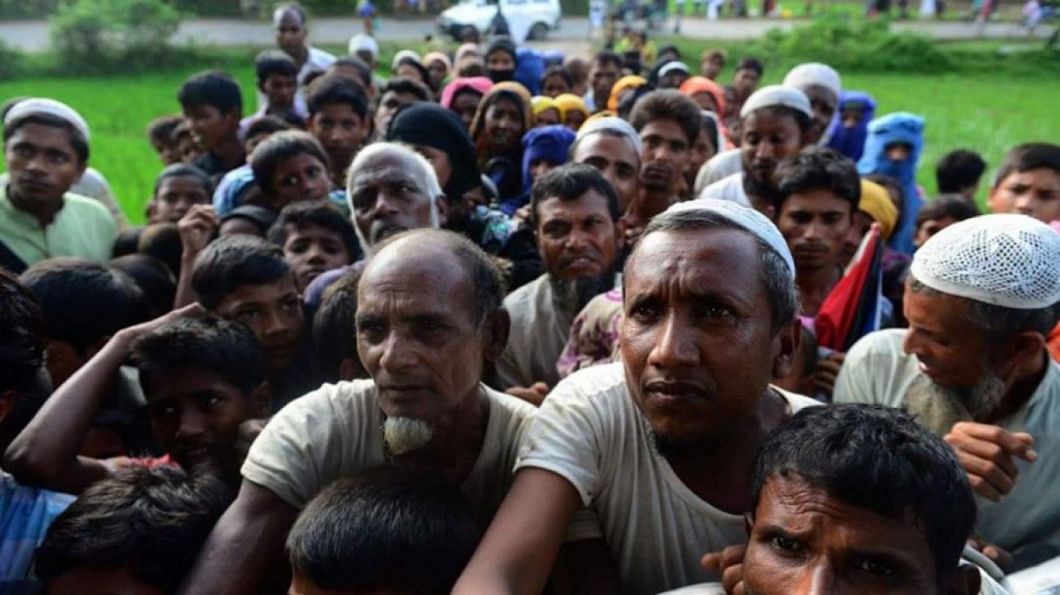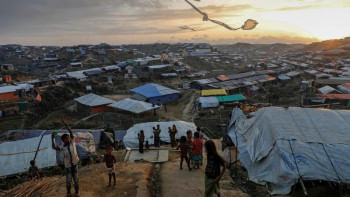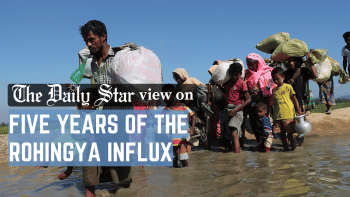What does the media’s framing of the Rohingya tell us?

Over the last few years, the media narrative on the Rohingya has seen a massive shift. When the biggest influx of Rohingya refugees occurred in August 2017 in Bangladesh, the media was very sympathetic towards them, narrating the plight in Myanmar – the genocide unleashed upon them by the Tatmadaw – which forced them to choose the path of exodus. And in a bold move, our nation welcomed the desperate refugees and provided them with much-needed shelter from the persecution they had been subjected to at home.
However, over time, the media framing, along with the concerns of the relevant authorities, shifted to that of the refugees being "burdens."
Media outlets started publishing reports on the economic costs of hosting refugees, how their presence is affecting local biodiversity, and the crimes that Rohingya refugees are being found to be associated with, especially in terms of drug smuggling. And while none of this is misinformation, what is missing from the reporting is any in-depth investigation on the push factors that are leading to the current conditions, as well as the external networks of crime that are oftentimes taking advantage of the refugees' precarious situation.
These reports are failing to reflect an underlying problem that the Bangladesh government and the international community must take into account and claim responsibility for: The uncertain fate of the Rohingya refugees that is pushing them towards desperation.
We have to understand that these are displaced people living in a perpetual state of uncertainty. Their living conditions in Bangladesh are far from ideal. They live in shanties, with appalling sanitation conditions and with almost no security mechanisms inside the camps. The women fear going outside the shanties when night falls, especially because of the gangs that operate there. And with almost no economic opportunities and education, the youth are falling into the traps of criminal networks.
Out of desperation, many refugees have fallen prey to the lures of human traffickers and met gruesome fates. Of these, women are the most vulnerable, since many are being trafficked into sex work. And capitalising on this situation, many of the refugees are recruited by criminal gangs.
While Bangladesh is working hard to find a solution for the repatriation of the Rohingya, the international community seems to do very little with regard to both finding a sustainable solution to safely shelter the Rohingya or providing humanitarian assistance. From 2017 to 2019, international humanitarian assistance accounted for 73 percent, 72 percent, and 75 percent, respectively, of the fund needed for the Rohingya refugees. In 2022, this saw a freefall to 49 percent, with USD 426 million received against an appeal of USD 881 million in the 2022 Joint Response Plan.

In such a situation, with no certainty in sight with regard to repatriation, dwindling humanitarian assistance, and increasing vulnerabilities in Rohingya communities, we need to find a sustainable situation for the refugees. While allowing them to assimilate with the local community or isolating them in risk-prone islands are neither sustainable nor efficient solutions, the refugees cannot be left to fend for themselves in their dingy camps. They will only become targets for criminal elements looking for foot soldiers.
Bangladesh, as a nation, has generously opened its doors for the Rohingya in a move that prioritised humanity over geo-political or socio-economic calculations. But now the same people whom we had once welcomed and sympathised with are being vilified as "criminals" due to the actions of a few, and due to circumstances that are out of their control. But if not here, where would the refugees go? And without economic or productive opportunities, how would they stay active and engaged?
These are issues that Bangladesh needs to find solutions to, and ones that the international community must take ownership of. For how long can Bangladesh be expected to host refugees, and for how long is the international community willing to provide funding? Who is ultimately responsible – the host country that has welcomed the Rohingya or the international community that has miserably failed them?
The international community must come up with sustainable solutions now, such as by providing education scholarships to young Rohingya refugees in other countries. On our end, the media must learn to stop portraying refugees as victims or criminals, and recognise their resilience. Ultimately, we must create platforms where the Rohingya can speak for themselves and exercise their own agency in deciding about their future.
Tasneem Tayeb is a columnist for The Daily Star. Her Twitter handle is: @tasneem_tayeb

 For all latest news, follow The Daily Star's Google News channel.
For all latest news, follow The Daily Star's Google News channel. 







Comments